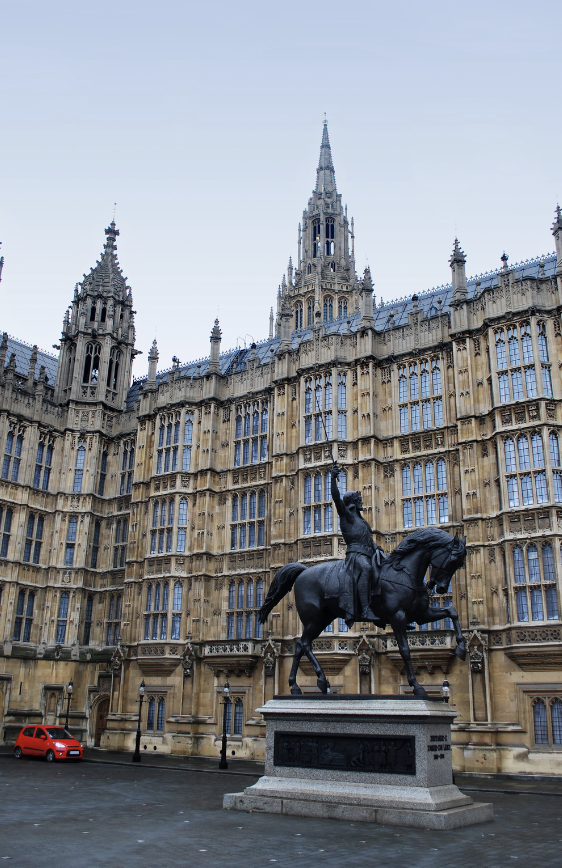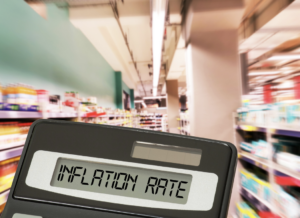The United Kingdom has entered a recession only a few months before a general election, according to official numbers that were released on Thursday. This has caused Prime Minister Rishi Sunak’s promise to promote economic growth to be derailed.
According to the Office of National Statistics, the gross domestic product saw a decline of 0.3% in the last three months of 2023, after a contraction of 0.1% in the period spanning July to September respectively. It is usual practice to define a recession as two consecutive quarters of decline rather than one.
According to a statement released by the ONS head of economic statistics Liz McKeown, “all of the major sectors fell on the quarter, with manufacturing, construction, and wholesale being the biggest drags on growth.” This was largely offset by rises in hotels as well as rentals of cars and machines.
According to projections provided by the ONS, the Gross Domestic Product of the United Kingdom expanded by a meager 0.1% in the year 2023. If the year 2020, which was impacted by the pandemic, is not taken into consideration, then this is the weakest result since 2009, when the economy was still suffering from the global financial crisis. The decrease in production that occurred in 2022 was followed by an increase of 4.3% in 2022.
McKeown said that the economy has remained mostly stable during the whole of the year 2023.
In light of the fact that Sunak’s Conservative Party, which is now in power and is running in two local elections in England on Thursday, would be quite disappointed by the news. Furthermore, it has the potential to amplify the already dominant advantage that the opposition Labour Party has in public surveys in advance of the national election that is anticipated to take place this year.
According to Suren Thiru, the economics director of the Institute of Chartered Accountants in England and Wales, “These figures also confirm that our economy remained locked in a cycle of persistent stagnation throughout the entirety of 2023.” This is despite the fact that the shallowness of this recession gives some measure of comfort.
In addition, the numbers provide an unfavorable background for the yearly budget statement that will be made by the government the following month. It is generally anticipated that Jeremy Hunt, the Minister of Finance for the United Kingdom, would announce minor reductions to some taxes, despite the sluggish economy and the sky-high levels of government debt.
It was on Thursday that Hunt said that sluggish growth was to be anticipated as a result of high interest rates. In order to combat inflation, the Bank of England has raised interest rates to levels that have not been seen in the last 26 years.
However, there are indications that the economy of the United Kingdom is beginning to show signs of improvement… “Despite the fact that many families are still struggling to make ends meet, we must remain committed to the plan, which is to reduce taxes on work and business in order to construct a more robust economy,” Hunt continued in a statement.
Recession is said to be “overly dramatic.”
Despite the fact that the recession is not particularly severe, the economy of the United Kingdom has fared far better than many experts had anticipated it would a year ago, when many were forecasting a much more severe decline.
Although employment continued to increase, real wages rebounded, and measures of business and consumer confidence returned to levels consistent with rising activity by the end of the year, it is overly dramatic to label the decline in economic activity in the second half of 2023 as a recession, according to Samuel Tombs, chief UK economist at Pantheon Macroeconomics. “It is overly dramatic to label the decline in economic activity as a recession,” Tombs said.
Inflation that is going to slow down and interest rate cuts that are likely to take place later this year should potentially improve economic activity, which is already picking up in the services sector, which is the most important sector.
In January, the annual inflation rate in the United Kingdom remained constant at 4%. When compared to the record high of 11.1% that was reached in October 2022, this is far lower than the aim of 2% that the Bank of England has set.
Asda store in Aylesbury, England, on August 15, 2023, a client examines some of the products that are available for purchase. The Bank of England is charged by the government of the United Kingdom with maintaining annual inflation at about two percent, despite the fact that the annual inflation rate in the United Kingdom is 7.9 percent, which is the highest among the G7 countries.
The inflation rate in the United Kingdom has increased for the first time in over a year.
Inflation in the food sector dropped to 7% from a recent high of 19.2% in March 2023, according to the ONS, which said Tuesday. The price of food had its first decrease in almost two years when compared to the previous month’s pricing.
While this is going on, incomes have been growing at a higher rate than prices for seven months in a row consecutively. According to the Office of National Statistics (ONS), the average salaries, excluding bonuses, increased at a 7.2% annual rate in the three months leading up to December.
According to a note that was published on Thursday by analysts at Nomura, “We think this is the end of the recession in the United Kingdom, and growth will stagger into positive territory but only slowly.”
Separate data released by the ONS on Thursday shows that increase in productivity, which is defined as production per hour, reached a plateau in the previous year, lending credence to the opinion that the recovery would not be particularly inspirational.



